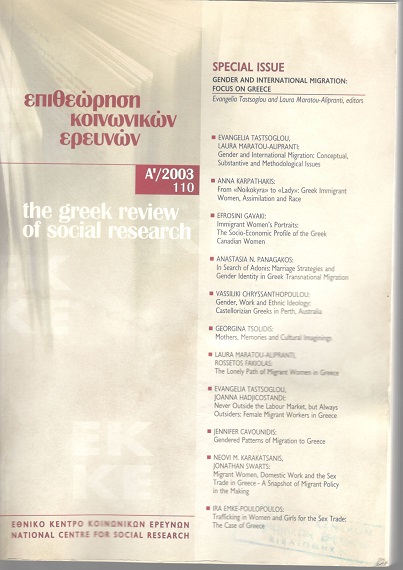Trafficking in women and girls for the sex trade: the case of Greece
Abstract
Trafficking in women and children for the commercial sex industry and pornography exists in all societies. Greece is an important destination and to a lesser degree transit country. After presenting estimates and statistics on legal and undocumented status, nationality, age, educational and family status, this paper analyses the causes of trafficking in the countries of origin and destination as well as the role of the traffickers. Trafficking is examined as a) a violation of fundamental human rights of the victims and as a lucrative business of the criminal traffickers. The yearly profits were estimated at 1130 million euros in the year 2000 and b)a crime commited by the traffickers and supported by corruption of the public officials, especially police with pparticipation of the clients and the Mas Media. Policy on trafficking and forced prostitution is also presented.
Article Details
- How to Cite
-
Emke-Poulopoulos, I. (2003). Trafficking in women and girls for the sex trade: the case of Greece. The Greek Review of Social Research, 110, 271–309. https://doi.org/10.12681/grsr.9175
- Section
- Articles

This work is licensed under a Creative Commons Attribution-NonCommercial 4.0 International License.
Authors who publish with this journal agree to the following terms:
- Authors retain copyright and grant the journal right of first publication with the work simultaneously licensed under a Creative Commons Attribution Non-Commercial License that allows others to share the work with an acknowledgement of the work's authorship and initial publication in this journal.
- Authors are able to enter into separate, additional contractual arrangements for the non-exclusive distribution of the journal's published version of the work (e.g. post it to an institutional repository or publish it in a book), with an acknowledgement of its initial publication in this journal.
- Authors are permitted and encouraged to post their work online (preferably in institutional repositories or on their website) prior to and during the submission process, as it can lead to productive exchanges, as well as earlier and greater citation of published work (See The Effect of Open Access).



